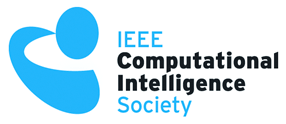Welcome to the Task Force:Granular Data Mining for Big Data!

Task Force:
Granular Data Mining for Big Data

-
Welcome to our task force,you can click the button below:
- Target and Motivation
Target and Motivation
Today, big data has become capital in both academia and industry fields, which is changing our world and the way we live at an unprecedented rate. Recent advances in computing technology allow us to gather and store large amounts of information from various fields, such as Internet, sensor monitoring systems, social networks, mobile communication systems, and transportation systems. Since big data contains greater variety arriving in increasing volumes and with ever-higher velocity, it is essential to develop new data mining and knowledge discovery techniques. Considering big data mining technologies, it still meet some serious problems requiring to be tackled, such as classification, clustering, regression, associate rules mining, and frequent pattern mining.
In the past, the evolution of research interest has focused on a relatively new area—granular computing (GrC), based on fuzzy sets, rough sets, probabilistic granules, shadowed sets, and so on. GrC provides a powerful tool for multiple granularity and multiple-view data analysis, which is of vital importance for understanding data driven analysis at different granularity levels. Real-world big data often contain a significant amount of unstructured, uncertain and imprecise data, and GrC exhibits strong capabilities and advantages in intelligent data analysis, pattern recognition, machine learning, and uncertain reasoning. But how to integrate GrC and data mining to combine their advantages is an interesting and important research topic. As a meta-mathematical methodology, granular data mining gives a theoretical framework of big data analytics. It extracts knowledge from insufficient data, which can then be used in data mining for a new task/domain with big data.
It has been a hot trend to address the classical and new-emerging data mining problems by using different granular computing approaches. The benefits of exploring the granular data mining in the knowledge reasoning scenario will have an impact in multiple research disciplines and industry domains, including transportation, communications, social network, medical health, and so on.